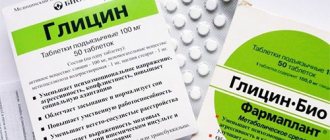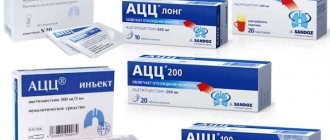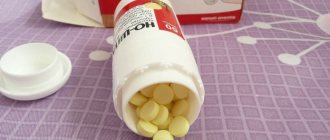Both during pregnancy and after childbirth, the hormonal levels in women remain extremely unstable. The body works in an intense mode, which does not have the best effect on the hematopoietic system as a whole. It often happens when high blood pressure is observed during breastfeeding, but the situation, even short-term, should in no case be left to chance. Such loads negatively affect the incompletely formed systems and organs of the infant. The lactation period is important in the life of women, and blood pressure levels need to be constantly monitored, and urgent measures must be taken if increased pressure has become an obsessive, daily occurrence.
What blood pressure is considered normal?
The optimal pressure readings are 120/80 mm; at a young age, the figure can fluctuate up to 130/85 mm, which is also considered normal. A lower reading should be monitored by a doctor. If blood pressure rises to 140/90 mm, there are all the signs of high blood pressure or hypertension, which must be treated.
If you neglect your health, the likelihood of swelling of the mammary glands will increase. Due to vascular spasms, milk will flow weakly through the ducts, which will lead to stagnation in them. The condition is dangerous because if bacteria penetrate into the area of congestion through microcracks in the nipples, a focus of inflammation will appear in the chest.
Development of lactostasis
Often, elevated blood pressure becomes a trigger for the development of lactostasis. This phenomenon is caused by blockage of the thoracic ducts, as a result of which milk can stagnate in the mammary glands. Primipara women often complain of lactostasis; a painful condition is observed in the first week. The provoking factor may be improper feeding and pumping.
Hypothermia and stressful conditions can provoke stagnation of milk, but not so often. Sometimes pathology is caused by the use of underwear of the wrong size, which pinches the milk ducts.
Due to high pressure, swelling occurs, and if the breasts suffer, lactostasis may appear. In this situation, prompt treatment is required, as the likelihood of developing purulent mastitis, which is even more dangerous, increases. When milk remains in the duct for a long time, fermentation begins, and non-purulent inflammation begins. Such conditions are excellent for the development of infectious processes.
We recommend reading: Polygynax during breastfeeding, treatment with suppositories during breastfeeding
The risk of the disease increases if a woman sleeps on her stomach. During the postpartum period, it is very important not to neglect the hygiene of the mammary glands and genital organs. Not only the care itself plays a role, but also extreme attentiveness to unpleasant sensations.
Causes of high blood pressure
When breastfeeding, a decrease or increase in blood pressure can be caused by the following factors:
- Nervous tension and regular stress. An increase in pressure can provoke a state of shock in the body after childbirth, which requires enormous physical and mental strength.
- Heredity, various chronic and acute diseases that immediate relatives suffered from.
- Obesity, smoking and alcohol abuse.
- Hormonal changes associated with pregnancy and birth of a baby. An excess of hormones causes spasm of blood vessels and, as a result, blood pressure increases.
- Problems with the thyroid, pituitary or adrenal glands.
- Polycystic disease, stenosis or tumors of the kidneys, glomerulonephritis and kidney prolapse.
- Vascular and heart diseases, such as myocarditis and atherosclerosis, angina pectoris or heart failure.
Why does it happen?
There can be many negative effects on high blood pressure. Most often, these are stress, nervousness, and overexertion in women, which is typical after childbirth, when the condition is otherwise called postpartum depression. Blood pressure surges are especially triggered by severe labor, as women spend a lot of energy. Also the main provoking factors:
- hormonal imbalance;
- diseases of the endocrine system;
- development of cardiovascular pathology;
- born, acquired heart defect;
- polycystic ovary syndrome;
- abuse of alcohol, smoking, strong coffee, tea;
- genetic hereditary predisposition;
- stress;
- lack of sleep;
- long stay in a stuffy, unventilated room.
On a note! One of the main reasons for increased blood pressure during lactation is an increase in circulating blood volume and an increase in the infant's nutritional needs. Milk begins to be present in larger quantities, and the body works in a certain, enhanced mode.
High blood pressure cannot be ignored. If the condition has become an obsessive phenomenon, then you need to think about visiting an endocrinologist or cardiologist. It is probably time for a nursing mother to undergo restorative therapy to correct hormonal levels, identify the causes in a timely manner and undergo diagnostics.
Signs that your blood pressure has increased
High blood pressure most often occurs due to problems that existed before or during pregnancy. In most cases, the culprit is preeclampsia, which is indicated by the following:
- constantly increasing concentration of protein in the urine;
- high blood pressure levels;
- persistent swelling of the legs, arms or whole body.
If the pressure is high during pregnancy and the situation does not change 2-3 months after birth, doctors diagnose arterial hypertension of I or II degree. The patient is prescribed an examination and then a course of treatment. All this time, the condition of the blood vessels and heart, as well as the kidneys and organs of vision, is monitored.
A sharp rise in pressure is manifested by nausea, general malaise, migraine attacks and “spots” before the eyes. It can be triggered by the problems described above, as well as the abuse of tea and coffee or taking medications. Stress, lack of rest and walks in the fresh air can also deplete the body and provoke a hypertensive crisis.
Another reason for increased blood pressure during lactation is a sharply increased volume of circulating blood. The body works in an intensive mode, as the baby is actively growing and constantly needs breast milk.
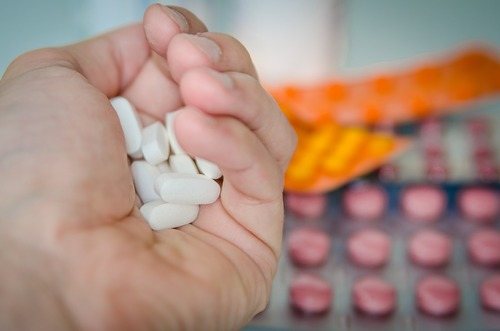
What can cause increased blood pressure during breastfeeding?
A persistent increase in blood pressure is dangerous for a nursing mother. If hypertension is left untreated, vision deteriorates and the functioning of the kidneys, heart, and circulatory system is disrupted.
High blood pressure can cause stagnation of milk - lactostasis, hormonal disorders. The risk of infections increases. Vascular spasms provoke cracked nipples. These factors make breastfeeding difficult.
If a woman self-medicates, the risk of serious consequences increases. Hypertension can be complicated by:
- atherosclerosis – damage to the arteries;
- stroke - acute cerebrovascular accident;
- a sharp decrease in vision;
- heart diseases;
- renal failure;
- metabolic disorders.
When the disease is detected at an early stage, it is much easier to treat than at an advanced stage. Properly selected treatment maintains the normal condition of blood vessels and significantly reduces deviations in the functioning of other body systems.
First aid
How to reduce blood pressure? If your blood pressure rises sharply, you should immediately call a doctor. If you have cardiovascular problems, it is advisable to always have a blood pressure monitor with you to measure your readings in any situation. Before the doctors arrive, you must:
- Take a comfortable position, do not walk or stand up, so as not to aggravate the situation.
- Before the ambulance arrives, it is forbidden to take untested medications. Only those drugs prescribed by the doctor are acceptable.
- If there is a sharp pain in the heart area, or suffocation is felt, you need to open a window or door to allow fresh air to enter.
- When the extremities freeze or begin to get cold, measures are taken to warm the body.
- In a critical situation, it is important for those around you to remain calm so as not to provoke anxiety and stress in the patient.
How to detect hypertension in a nursing mother?
Blood pressure is a value characterizing the degree of blood supply. The indicator is measured with a special device - a tonometer. The level of blood pressure depends on the volume of circulating blood, the diameter of blood vessels, and the work of the heart. The numbers on the tonometer indicate the level of force with which the blood presses on the walls of the blood vessels.
There are 2 types of blood pressure: systolic and diastolic. The first indicator is measured when the heart contracts. The second parameter indicates the force of influence on the vessels at the moment of relaxation of the organ.
For an adult, a blood pressure of 120/80 mmHg is considered normal. A one-time increase in the indicator is not considered a violation. In this case, no correction is required. If blood pressure surges are observed for several days, your health worsens, and treatment cannot be avoided.
Symptoms of high blood pressure
Signs of the disease depend on the level of pressure and the “affected” organs. Early manifestations of hypertension in nursing women are characterized by neurological disorders:
- headache radiating to the back of the head;
- dizziness;
- nausea;
- visual disturbances (spots, flashes before the eyes);
- tinnitus;
- feeling overwhelmed;
- lethargy;
- increased heart rate;
- pulsation in temples;
- sleep disturbance;
- rapid fatigue.
Shortness of breath indicates the progression of the pathology. This sign appears during exercise and walking. A typical manifestation of high blood pressure is prolonged pain in the heart. Hypertension is also recognized by excessive sweating, tremors, swelling of the limbs and face, numbness, and tingling. Vasospasm can cause hemorrhage in the retina.
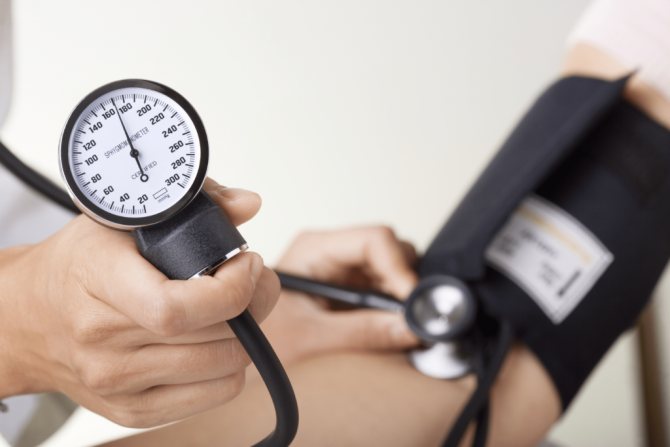
Increased pressure manifests itself in different ways. Some women associate increased blood pressure with the weather.
Most often, a hypertensive crisis is associated with overwork and stress. If the malaise persists for more than a day, you should consult a therapist to clarify the diagnosis.
How to lower blood pressure during lactation
What is the best way to lower high blood pressure? Doctors recommend treating the condition with Nifedipine, Verapamil or beta blockers, Metoprolol, Nadolol and Labetalol. In some cases, diuretics are prescribed, but it is worth remembering that they worsen lactation and require coverage with hormonal medications. In severe cases, patients are recommended to take medications: Dopegit or Methyldopa, which are practically not absorbed into breast milk.
General recommendations
What is the best way to reduce blood pressure on your own? The following recommendations will help ease the situation:
- A balanced diet that does not contain salty, fatty, fried, spicy or smoked foods. Also, the feeding regimen and excellent health will require giving up fatty sour cream and cream, fatty meat and fish, jam, confectionery and seafood.
- It is recommended to saturate your diet with vegetables and fruits, fresh or cooked with minimal heat treatment.
- You should give up cigarettes and alcohol, tea and coffee, and replace the latter with fresh vegetable and fruit juices.
- If you are overweight, you should consult a nutritionist. He will create a daily menu to lose excess fat mass.
- It is useful to keep not only your body in shape, but also your emotional state, avoid stressful situations and tune in to the positive.
Herbal treatment
If you constantly suffer from migraines, you can drink herbal tea from meadowsweet, mistletoe tincture or hawthorn juice. It is useful to use motherwort tincture or prepare a drink from the following herbs:
- Take 2 tbsp. l. juniper cones and lemon balm, 3 tbsp. l. peppermint and motherwort and 1 tbsp. l. dill.
- Mix the ingredients, then pour a couple of tablespoons of the mixture into a liter of boiling water, steaming it in a thermos.
- After 3-4 hours, you can drink the infusion at the rate of 0.5 glasses per day: once in the morning, once in the evening. It is drunk half an hour before or after meals, without drinking water or juice.
Therapeutic baths
You can take a relaxing bath with valerian. To do this, a bottle of tincture is poured into water to which sea or regular salt has been added. Duration of the procedure: 10-15 minutes.
For high blood pressure, a clay bath helps well, and the water temperature should not exceed +37 degrees:
- First soak 3-4 handfuls of clay in a small amount of water. Grind the mixture thoroughly so that there are no lumps or foreign inclusions.
- The clay mixture is poured into the bath, a head of crushed fresh garlic is added.
- Duration of the procedure: 25-30 minutes, while it is useful to do a self-massage of the body, and at the end rub thoroughly with a hard towel.
Useful tips: video
Symptoms of hypotension
You can understand that something is wrong by looking at some symptoms and signs.
- general weakness, constant drowsiness;
- increased sweating;
- pale skin;
- frequent mood changes;
- irritability;
- weather sensitivity;
- nausea, dizziness;
- lethargy;
- increased heart rate during increased physical activity;
- memory impairment, inattention;
- standing up suddenly can also cause severe dizziness.
Fainting is also possible. Especially in hot, stuffy weather, in public transport, hypotensive patients may feel ill. Due to the same disease, sleep and appetite may be disturbed.
Approved drugs
The fight against high blood pressure during breastfeeding is possible only under the supervision of a doctor, who will tell you how to “bring down” blood pressure. If the condition is caused by gestosis, it is recommended to go to the hospital. In this condition, preeclampsia and eclampsia rapidly develop and increase; in the hospital it will be easier to control the situation and provide the woman with timely assistance.
As for pharmaceuticals, they are prescribed with great caution for hepatitis B. The fact is that almost all medications, after entering a woman’s body with milk, enter the baby’s body. If blood pressure rarely rises or the situation quickly stabilizes, doctors advise stopping taking any medications.
When you cannot do without pills, and your blood pressure is persistently elevated, the doctor prescribes medications, such as Nifedipine or Methyldopa. Drugs such as b-blockers, Dopegit and Verapamil are also considered compatible with breastfeeding. The dosage and time of administration must be agreed with the doctor.
How to take medications if your blood pressure suddenly jumps:
- You need to drink valerian or motherwort tablets.
- Take a Dopegyt or Methyldopa tablet, placing it under your tongue. For persistently elevated blood pressure, hypertension, and hypertension, the medication is prescribed to be taken in a course.
- If during a crisis the resting pulse does not exceed 90 beats per minute, you can take a Nifedipine tablet, but only once in the dosage indicated in the annotation!
Large dosages and frequent use of the above drugs are dangerous for a newborn. Before taking, be sure to consult your doctor!
Other symptoms
As a rule, before the pressure increases, young mothers complain of migraines, dizziness, dark circles before the eyes, nausea and vomiting. During the diagnosis, an increase in the concentration of protein in the urine is detected, and the lower extremities swell. Often the pressure rises and falls.
If an increase in blood pressure is observed within 2-3 months, then, most likely, arterial hypertension of the first or second degree has developed. In this case, an urgent examination is required. The kidneys and urinary system as a whole must be checked. There is a high probability of seizures and accelerated development of heart failure.

Women who have experienced surges in blood pressure during lactation must be under medical supervision for at least 3 months. It is important to be able to reduce pressure in a timely manner and control its indicators, not allowing it to exceed 150/90 mmHg. Art. Due to swollen legs, the lungs may also suffer, but many medications are prohibited for use when breastfeeding. Violation of the prohibition can lead to the baby’s refusal to accept mother’s milk.
Prohibited drugs
The following drugs are considered prohibited for the entire period of lactation:
- Medicines that belong to the group of beta-blockers: Metoprolol, Atenolol and Nadolol.
- Reserpine, angiotensin II receptor blockers and ACE inhibitors, which have a detrimental effect on the body of newborns.
- Clonidine and diuretics, which are harmful to infants and reduce lactation.
- Injections for blood pressure such as injection of Dibazol, No-shpa, Papaverine or Magnesium sulfate are not recommended. They will reduce high blood pressure for a short period of time, after which the condition will soon worsen again.
Pressure changes are observed in mothers of any age; if treatment is started in time, the situation will stabilize and be controlled. At the first signs of malaise and frequent fluctuations in blood pressure, you should immediately consult a doctor. He will conduct an accurate diagnosis and prescribe a course of therapy that is effective and safe. Remember that your health and well-being of your baby is entirely in your hands!
Risk factors

Risk factors for increased blood pressure during the lactation period are:
- hereditary predisposition (parents, grandparents were diagnosed with arterial hypertension);
- alcohol abuse;
- presence of excess body weight (during pregnancy, many women gain a lot of weight);
- smoking;
- stopping taking antihypertensive drugs (applies to mothers who suffered from hypertension during pregnancy);
- diabetes.
Women who are at risk of developing hypertension need to especially closely monitor their health and periodically check their blood pressure with a mechanical tonometer.
Studies for increased blood pressure
To understand the reason for the deviation, a number of measures are carried out. First of all, the doctor measures blood pressure and analyzes complaints. High systolic pressure is considered to be values from 140. The second value is more than 90. At the first examination, the indicator is measured on both arms with a small interval.
After finding out the necessary information and studying the medical history, the woman is sent for laboratory tests and studies. Diagnosis at the discretion of the therapist includes:
- blood and urine tests;
- electrocardiography;
- fundus examination;
- Ultrasound of the heart, thyroid gland;
- doppler
To determine the target organs that have suffered from vasospasm, studies of the digestive organs, blood vessels, and kidneys may be prescribed.
Prevention
By following simple and effective measures to prevent hypertension, you can significantly reduce the likelihood of developing a chronic disease.
If there is a hereditary predisposition, blood pressure should be regularly monitored . You can improve your cardiovascular health through regular physical activity, proper nutrition, and quitting alcohol and smoking.
However, you need to monitor not only your body, but also your emotional state. In particular, it is recommended to be positive and avoid stressful situations.
Medicines
To relieve the condition and reduce blood pressure, the following medications can be prescribed:
- Verapamil;
- Nifedipine;
- Labetalol, Metoprolol as beta blockers;
- Dopegit, Methyldop in severe cases.
These blood pressure pills are not absorbed into breast milk. But it is better not to use diuretics. The medicine can lead to worsening lactation and decreased breast milk production.
Approved medications include:
- Melidop;
- Nefedipine;
- Verapamil, but with mandatory dosage compliance and only after a doctor’s prescription.
When there is a surge in blood pressure, women drink motherwort and valerian in small doses, although exceeding doses is also dangerous for the health of infants. Feeding may have to be interrupted. Specialist consultation is required.
The following medications are strictly prohibited:
- ACE inhibitors;
- angiotensin blockers (Reserpine);
- diuretic tablets (Furosemide);
- injections in injections (Papaverine, Dibazol, magnesium sulfate);
- adrenergic blockers (Atenolol, Nadalol, Metoprolol).
Even if these drugs can lower blood pressure for a short time, they will ultimately only lead to new severe pressure drops. If you cannot do without medications to lower your blood pressure, then the main thing is to take the following:
- water soluble;
- high molecular weight;
- ionized;
- with rapid elimination from the body;
- achieving high concentrations in blood plasma in a matter of hours.
You need to take medications consciously, without forgetting that the baby’s health is only in the mother’s hands.
IMPORTANT! It is not recommended to take medications at pressure levels up to 150x95 mm Hg. Art. Above this level the condition may become critical. Signs of hypertension are likely and the best consultation is with a doctor. Taking unknown drugs can be detrimental to a child's health.
Diagnostics
Regardless of whether a nursing mother is worried about low or high blood pressure, she is recommended to undergo a comprehensive examination aimed at identifying the cause of blood pressure surges. The main diagnostic techniques are:
- General clinical blood test. This study will help assess hemoglobin levels, a decrease in which leads to a drop in blood pressure;
- Blood test for thyroid-stimulating hormone levels;
- Analysis of ferritin concentration. This study allows us to identify the hidden course of iron deficiency anemia;
- Electrocardiography;
- General urine analysis.
Video
You will find some more tips on reducing blood pressure without the help of medications in our video.
During breastfeeding, women often experience phenomena such as low or high blood pressure. Against the background of general fatigue and depletion of the body's vitamin and mineral resources, a drop in blood pressure may occur. These conditions can be triggered by various factors caused by environmental influences, hormonal changes in the body of a young mother, as well as changes in vascular tone.

